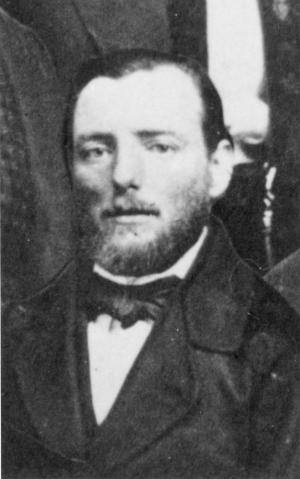 "For what reason we have commenced this war I will tell you. It is on account of Major Galbraith."
"For what reason we have commenced this war I will tell you. It is on account of Major Galbraith."
Little Crow in a letter to Henry Sibley, 1862.
Thomas J. Galbraith was an American politician. In 1857, he signed the Republican version of the Minnesota State Constitution. In the wake of Lincoln’s election in November 1860, Republicans swept the federal jobs in the Northern Superintendency of Indian Affairs and the thirty-six-year-old Galbraith was appointed Sioux Agent. As an agent appointed by the U.S. government, he was charged with fulfilling treaty obligations to the Dakota and with enforcing Indian affairs code, including regulating the traders.
By the spring of 1862, fed up with the inefficiencies of the Indian system in which he was enmeshed, Galbraith resigned his post as Agent, then agreed to hold his resignation until after the annuity payment was made. Throughout the summer he tried to deal with an impossible situation. When annuity payments were delayed, he tried to convince the Dakota to accept greenbacks rather than the gold promised them. He kept the few government rations he had left locked in a warehouse at the Lower Agency and he tried to convince traders to extend more credit to Dakota clients for much-needed food.
On August 18, Galbraith and a group of Civil War recruits known as the Renville Rangers took off from the Upper Agency. Galbraith believed he would deliver the recruits to Fort Snelling, return to the reservation to make the annuity payment, then accept a leadership position in a Minnesota regiment as thanks for his recruiting efforts.
News of the outbreak of war overtook Galbraith and his recruits at St. Peter on August 19. The Renville Rangers changed course and marched to the aid of Fort Ridgely. Meanwhile, Galbraith’s wife, Henrietta, and their two children were being led to safety from their home at the Upper Agency by the Wahpeton Dakota leader Anpetutokeca (John Other Day). Galbraith helped defend Fort Ridgely and was wounded at the battle of Birch Coulee. After the war Galbraith was exonerated in two congressional investigations into allegations that his conduct at the Agency brought on the U.S.-Dakota War. Galbraith died in Cheyenne, Wyoming, in 1909.